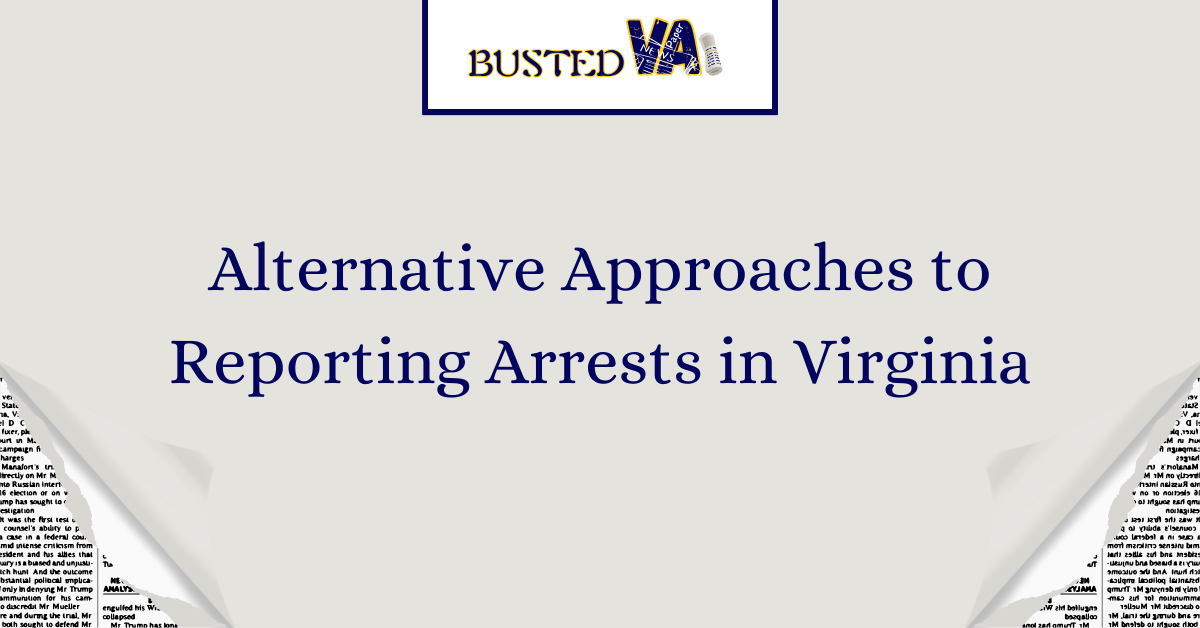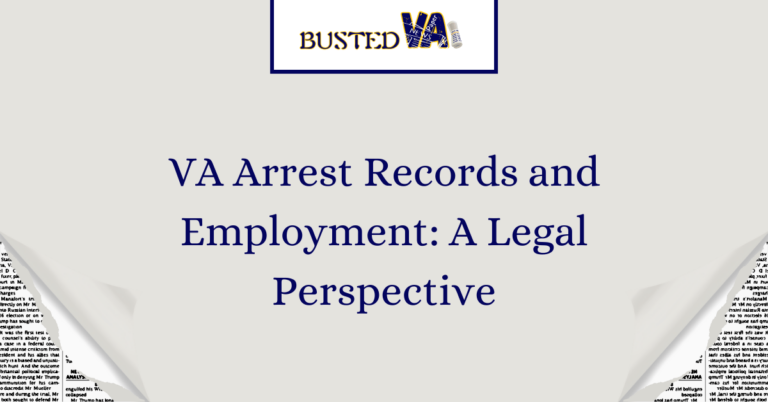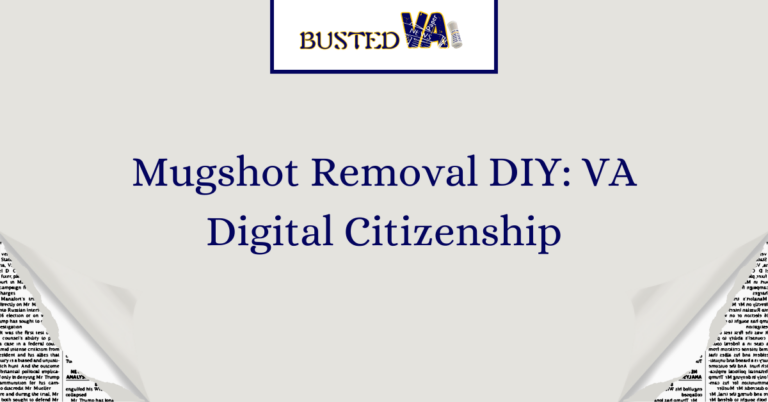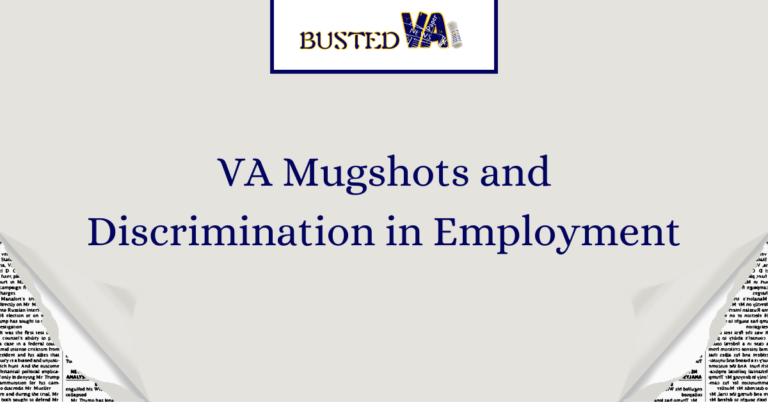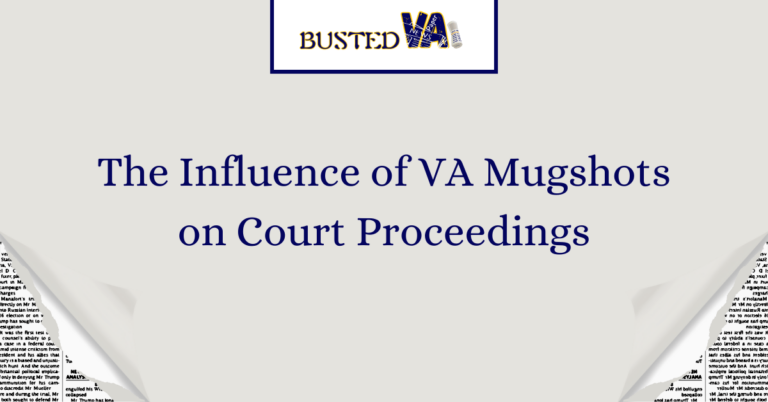Alternative Approaches to Reporting Arrests in Virginia
Virginia is a state known for its rich history, stunning landscapes, and vibrant communities. In recent years, there has been a growing conversation about the way arrests are reported and how it impacts individuals and communities. As we delve into this topic, we will explore alternative approaches to reporting arrests in Virginia and the potential benefits they bring.
Traditionally, when an arrest occurs, it is often publicized through local newspapers or online news platforms. While this may seem like a straightforward way to inform the public, it can have unintended consequences. The stigma associated with being arrested can follow individuals long after their case is resolved, impacting their ability to find employment, housing, or even rebuild their lives.
Recognizing these challenges, some communities in Virginia are exploring alternative approaches to reporting arrests. One such approach is to focus on restorative justice, aiming to rehabilitate individuals rather than perpetuating a cycle of punishment. By shifting the narrative from punishment to rehabilitation, these alternative approaches seek to address the root causes of criminal behavior and promote healing within the community.
Reimagining the Role of Arrest Reporting
In our ever-evolving society, the way we approach law enforcement and criminal justice is constantly being reevaluated. As we delve deeper into the topic of arrest reporting, it becomes clear that traditional methods may not be serving us as well as we once thought. It is time to explore alternative approaches that prioritize rehabilitation and healing, and in doing so, create a more just and compassionate community.
The Consequences of Traditional Reporting
When an arrest occurs, the immediate reaction is often to publicize it through local newspapers and online platforms. While this may seem like a responsible way to keep the community informed, it is essential to consider the unintended consequences it can have on individuals and their future prospects.
The Lingering Stigma
Being arrested carries a heavy stigma that can follow individuals long after their case is resolved. This stigma can impact their ability to secure employment, find housing, or even rebuild their lives. By focusing solely on punishment and perpetuating a cycle of shame, we fail to address the root causes of criminal behavior and hinder the healing process.
Restorative Justice: Shifting the Narrative
Recognizing the challenges posed by traditional reporting, some communities in Virginia are embracing alternative approaches that prioritize restorative justice. This shift in focus aims to rehabilitate individuals rather than perpetuating a cycle of punishment, ultimately promoting healing within the community.
Addressing Root Causes
Restorative justice recognizes that many individuals engage in criminal behavior due to underlying social, economic, or psychological factors. By addressing these root causes through counseling, education, and community support, we can work towards breaking the cycle of crime and creating a safer and more inclusive society.
Creating Opportunities for Rehabilitation
By shifting the narrative from punishment to rehabilitation, we open up possibilities for individuals to rebuild their lives and contribute positively to society. Instead of being labeled as criminals, they are seen as individuals who made mistakes and are now seeking a path to redemption.
Supporting Reintegration
Through programs focused on job training, educational opportunities, and counseling, we can provide the necessary support for individuals to reintegrate into society successfully. By offering a helping hand rather than casting judgment, we can empower individuals to overcome their past and create a brighter future.
Fostering Healing within the Community
Embracing restorative justice approaches to arrest reporting not only benefits individuals but also fosters healing within the community as a whole. By prioritizing rehabilitation over punishment, we create an environment that encourages empathy, understanding, and second chances.
Building Stronger Communities
When we focus on healing and rehabilitation, we lay the foundation for stronger and more resilient communities. By addressing the root causes of criminal behavior and providing individuals with the support they need, we can reduce recidivism rates and create a safer and more harmonious society.
FAQs
What are alternative approaches to reporting arrests in Virginia?
Alternative approaches to reporting arrests in Virginia refer to different methods and programs that aim to address the issue of arrests in a more effective and efficient manner. These approaches include diversion programs, restorative justice initiatives, and community-based alternatives.
How do diversion programs work?
Diversion programs provide individuals who have committed a non-violent offense with an opportunity to avoid traditional court proceedings. Instead, they are offered counseling, rehabilitation, or community service, allowing them to address the underlying causes of their behavior and prevent future reoffending.
What are restorative justice initiatives?
Restorative justice initiatives focus on repairing the harm caused by a crime by involving all parties affected – the victim, the offender, and the community. These initiatives aim to promote dialogue, understanding, and accountability, often through facilitated meetings or mediation sessions.
What are community-based alternatives to reporting arrests?
Community-based alternatives involve partnering with local organizations and community members to address the root causes of crime and prevent arrests. These initiatives can include mentorship programs, job training, educational opportunities, and access to social services, all aimed at reducing the likelihood of individuals engaging in criminal behavior.
Are alternative approaches effective?
Research has shown that alternative approaches to reporting arrests can be highly effective in reducing recidivism rates and improving outcomes for both individuals and communities. By addressing the underlying causes of criminal behavior and providing support and resources, these approaches offer a more holistic and long-term solution to crime.
Conclusion
It is time to reimagine the role of arrest reporting in Virginia. By embracing alternative approaches that prioritize restorative justice and rehabilitation, we can create a more compassionate and just society. Let us come together, break the cycle of punishment, and build a future that is focused on healing, understanding, and second chances.

